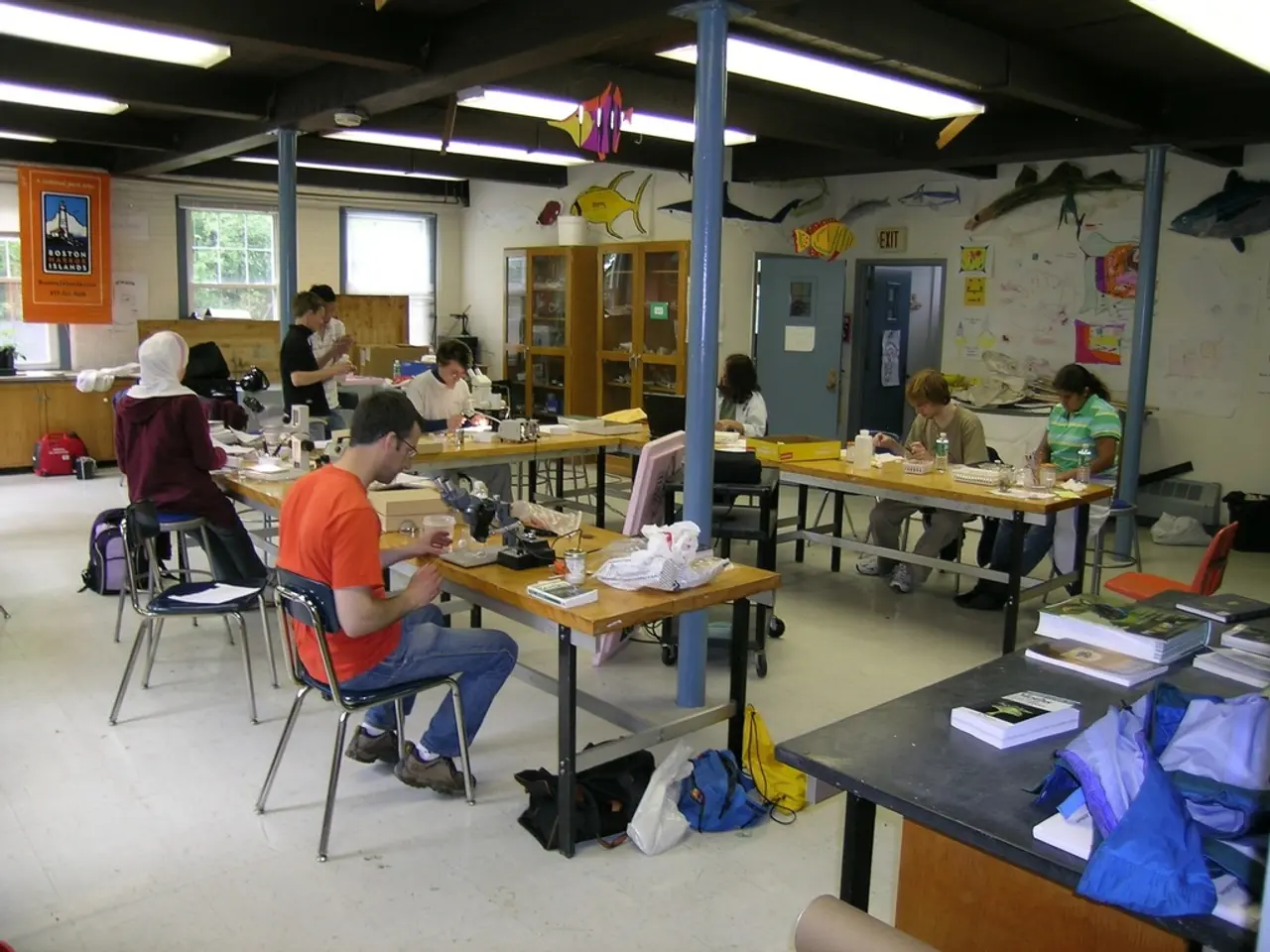Strategies for Students: Maximize Tax Returns and Keep More Cash
A Guide for Austrian Students: Claiming Tax Deductions on Educational Expenses
For students in Austria, understanding the tax system and the potential deductions available can be a valuable tool in managing financial expenses related to education. Here's a breakdown of the key points to consider:
Eligible Expenses
Students can claim tax deductions for expenses directly related to their vocational training or professional development. This might include fees for specialized courses, study materials, and travel expenses if the education is job-related. However, it's important to note that tuition fees at public universities are generally low or free for EU/EEA students, making them rarely a deductible educational expense.
Proving Your Expenses
To claim deductions, students must document and prove that the expenses were necessary for their education or professional qualification. Supporting documents such as receipts or invoices are required.
Claiming the Deductions
Expenses can be claimed in the annual income tax return submitted to the Austrian tax authorities (Finanzamt). It's essential to keep all receipts for at least 7 years for potential audits.
Occupational Expenses
The most interesting part of the tax assessment for students is the occupational expenses category. This can include tuition fees, textbooks, specialist literature, laptop and accessories, travel, and commuting costs.
Marginal Employment
If you have marginal employment while studying, you can choose voluntary insurance for health and retirement. Additionally, if you pay social security contributions, you can write them off against your taxes (tax credit) and get 50% of the contributions back.
Distance and Duration
If your place of study is more than 80km from your parents' home or if the quickest itinerary via public transport is more than one hour, your parents can apply for a monthly tax allowance of €110. To calculate the distance or duration, you can use the commuting calculator tool of the Ministry of Finances.
Partial Repayment
If students earn less than €21,500 per year and pay social security contributions, they are entitled to a partial repayment.
Additional Income Limit
If you work in addition to your studies, you should pay attention to the additional income limit, which is €15,000 per year.
Seeking Advice
Students with specific questions or complex situations often consult a tax advisor due to the nuanced Austrian tax law around education costs. For more precise guidance, contacting the Finanzamt or a local tax expert in Austria is recommended.
[1] The article provides tax tips for students. [2] Occupational expenses include tuition fees, textbooks, specialist literature, laptop, and accessories, travel, and commuting costs. [3] To write off expenses, students need to collect all receipts and keep them for at least 7 years. [4] If you have marginal employment while studying, you can choose voluntary insurance for health and retirement. [5] To calculate the distance or duration, you can use the commuting calculator tool of the Ministry of Finances. [6] Students can pick a voluntary retirement insurance. [7] If you have marginal employment, you can write the social security contributions off against the taxes (tax credit) and get 50% of the contributions back. [8] If students earn less than €21,500 per year and pay social security contributions, they are entitled to a partial repayment. [9] If you work in addition to your studies, you should pay attention to the additional income limit, which is €15,000 per year.
Read also:
- "Initiation of the Regional phase for the 'Mama-Entrepreneur' programme unfolds in Syktyvkar"
- Predictive analytics' potency: Discovering Wisdom and Anticipating Dynamics in Data Trajectories
- Build a Location-Focused App Swiftly and Affordably: Steps to Follow
- Comprehensive Insight into Healthcare Revenue Cycle Analysis




